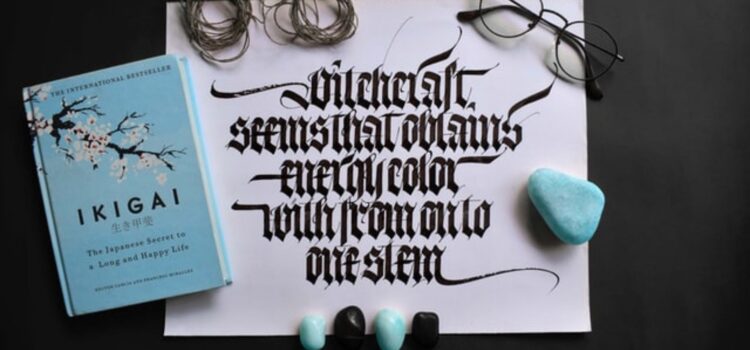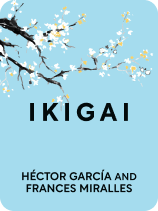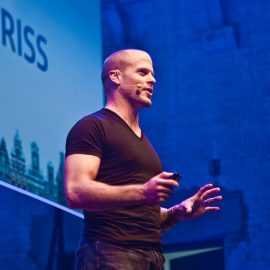

This article is an excerpt from the Shortform book guide to "Ikigai" by Héctor García and Francesc Miralles. Shortform has the world's best summaries and analyses of books you should be reading.
Like this article? Sign up for a free trial here .
What are the best Ikigai book quotes? What do they say about the human search for purpose and meaning?
In Ikigai: The Japanese Secret to a Long and Happy Life, author and blogger Héctor García and novelist and self-help writer Francesc Miralles teach you how to apply the Japanese concept of ikigai, or life purpose, to your own life. The following Ikigai book quotes discuss some of the key themes and ideas from the book.
Keep reading for the best quotes from the book Ikigai: The Japanese Secret to a Long and Happy Life.
Ikigai: Book Quotes and Their Meaning
The word ikigai is essentially the Japanese equivalent of the French raison d’être, meaning a person’s reason for existing, or life purpose. In their book Ikigai, Héctor García and Francesc Miralles show you how to find and follow your own ikigai to cultivate and sustain a happy, healthy lifestyle. The following Ikigai quotes will help you distill the key lessons of the book.
“Be led by your curiosity, and keep busy by doing things that fill you with meaning and happiness.”
The first of the Ikigai book quotes describes the way the Japanese understand the concept of ikigai. They say that your ikigai is hidden deep within yourself but you shouldn’t worry too much about your ikigai or become preoccupied with finding it. Instead, let your ikigai find you as you occupy yourself with doing the things you love in the company of the people that love and care for you.
“Morita explained the idea of letting go of negative feelings with the following fable: A donkey that is tied to a post by a rope will keep walking around the post in an attempt to free itself, only to become more immobilized and attached to the post. The same thing applies to people with obsessive thinking who become more trapped in their own suffering when they try to escape from their fears and discomfort.“
In the second of the Ikigai book quotes, the authors explain the premise behind Morita therapy, the Japanese form of therapy specifically aimed at helping people find their ikigai or life purpose. Created by psychotherapist and Zen Buddhist Shoma Morita, Morita therapy teaches people in psychological crisis to accept their emotions instead of trying to control them. It says your emotions will automatically change when you change your actions, and as this happens, your purpose will become clear.
“Presented with new information, the brain creates new connections and is revitalized. This is why it is so important to expose yourself to change, even if stepping outside your comfort zone means feeling a bit of anxiety.”
In discussing longevity, the authors make a point that mental exercise is just as important for health and youthfulness as physical exercise because it revitalizes your brain. When you take in new information, your brain creates new neural connections to process it. In this way, processing new information actually grows and shapes your brain in new ways, keeping it pliable and young. One easy but effective way to give your brain a workout and help it stay young is to open yourself to change. For example:
- Step outside your comfort zone.
- Learn new information or a new skill.
- Play a game with other people.
“We often think that combining tasks will save us time, but scientific evidence shows that it has the opposite effect. Even those who claim to be good at multitasking are not very productive. In fact, they are some of the least productive people. Our brains can take million bits of information but can only actually process of few dozen per second. When we say we’re multitasking, what we’re really doing is switching back and forth between tasks very quickly. Unfortunately, we’re not computers adept at parallel processing. We end up spending all our energy alternative between tasks, instead of focusing on doing one of them well. Concentrating on one thing at a time may be the single most important factor in achieving flow.”
Since flow means single-pointed focus, it’s incompatible with multi-tasking. Only when you are fully focused on what you are doing can you experience flow. It’s a state in which your consciousness, actions, and energies come together to produce high performance.
“Everything can be taken from a man but one thing: the last of the human freedoms—to choose one’s attitude in any given set of circumstances, to choose one’s own way.”
The last (but not least) of our selection of the best Ikigai book quotes refers to Victor Frankl’s philosophy on finding meaning in the most desperate times. Viktor Frankl was a prisoner under the Nazis in various German concentration camps. From this experience, he famously declared that you can take away literally everything from a person except their ability to choose their attitude. Frankl also said a clear life purpose enables a person to overcome virtually any challenge and endure virtually any conditions.

———End of Preview———
Like what you just read? Read the rest of the world's best book summary and analysis of Héctor García and Francesc Miralles's "Ikigai" at Shortform .
Here's what you'll find in our full Ikigai summary :
- How to apply the concept of ikigai, or life purpose, to your own life
- Why the people of Okinawa live longer than people anywhere else
- The 10 commandments of ikigai






